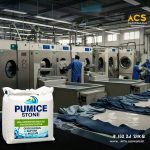In the construction industry, innovation and cost-efficiency are key drivers of success. Lightweight blocks made from pumice stone are revolutionizing the building materials market due to their versatility, durability, and eco-friendliness. If you’re looking for a lucrative business opportunity, producing lightweight blocks with pumice stone could be the perfect venture. Here’s why and how you can start.
Why Choose Pumice Stone for Lightweight Blocks?
1. Natural and Sustainable Material
Pumice stone is a natural volcanic rock that is abundant and environmentally friendly. Its production and use have minimal environmental impact, making it a sustainable choice for modern construction.
2. Exceptional Lightweight Properties
Pumice stone’s porous nature makes it ideal for manufacturing lightweight blocks. These blocks are easier to handle, transport, and install, reducing labor costs and construction time.
3. Thermal and Sound Insulation
Lightweight blocks made with pumice stone offer excellent thermal insulation, reducing energy costs for heating and cooling buildings. They also provide effective sound insulation, enhancing the comfort of living and working spaces.
4. High Durability and Strength
Despite being lightweight, pumice stone blocks are highly durable and can withstand harsh environmental conditions. This makes them suitable for a wide range of construction projects.
5. Cost-Effective
Lightweight blocks require less cement and other materials during production, reducing costs without compromising quality.
How to Start Producing Lightweight Blocks with Pumice Stone
1. Conduct Market Research
Identify your target market and understand their needs.
Analyze competitors and pricing strategies in your region.
Assess the demand for lightweight blocks in residential, commercial, and industrial sectors.
2. Secure a Reliable Source of Pumice Stone
Partner with trusted suppliers like Tradeworth International to ensure consistent quality and availability of pumice stone.
3. Set Up Your Manufacturing Unit
Invest in machinery such as mixers, molds, and curing equipment.
Ensure your facility complies with local safety and environmental regulations.
Train your workforce in the production process.
4. Develop a Production Process
Create a precise mix design with pumice stone, cement, and water.
Use automated or semi-automated machinery to ensure consistent block quality.
Cure the blocks for optimal strength and durability.
5. Focus on Quality Control
Regularly test your blocks for weight, strength, and insulation properties to maintain high standards and meet customer expectations.
6. Market Your Products
Highlight the eco-friendly and cost-effective benefits of your blocks.
Use social media, local advertising, and partnerships with construction firms to increase visibility.
Offer competitive pricing and volume discounts to attract clients.
Boosting Your Business
Once your production is underway, focus on scaling your business:
Diversify Products: Expand into producing paving stones or precast elements using pumice stone.
Build Strong Partnerships: Collaborate with architects, builders, and contractors to secure bulk orders.
Leverage Innovation: Invest in research to develop advanced lightweight materials.
Go Green: Highlight the environmental benefits of your blocks to attract eco-conscious clients.
Conclusion
Producing lightweight blocks with pumice stone is not just a profitable business idea; it’s a step towards sustainable construction. With its numerous advantages and growing demand, this venture offers immense potential for entrepreneurs. By focusing on quality, efficiency, and market needs, you can establish a thriving business and contribute to the future of eco-friendly construction.
Start today and transform your vision into a reality! For premium-quality pumice stone and expert guidance, reach out to Tradeworth International, your trusted partner in building a sustainable future.







